Making a difference for future generations
Susanne Ehnbåge, CEO at Lindex, opened D-Congress and talked about their journey of not only achieving financial success but where more is expected of them as a company. In 2019, Lindex's future promise to make a difference for future generations was launched. It requires both technical innovation and courage to break established patterns, as well as a strong commitment among all employees.
Female Engineering is one of the newer brands that Lindex has entered into within FemTech. Lindex is also working with an initiative - Reinvent the model, which will change the stereotype of a typical model.
In 2018, a sustainability goal was set where Lindex wanted to reduce the climate footprint by 50% with the base year of 2017 to be achieved by 2030. Everything from fiber selection, production and the customer's use. In parallel, there have been goals to grow and get better financial results. From 2017, the result has gone from SEK 130 million to reaching just over SEK 1 billion in 2023. At the same time, the climate footprint has decreased by 41%.
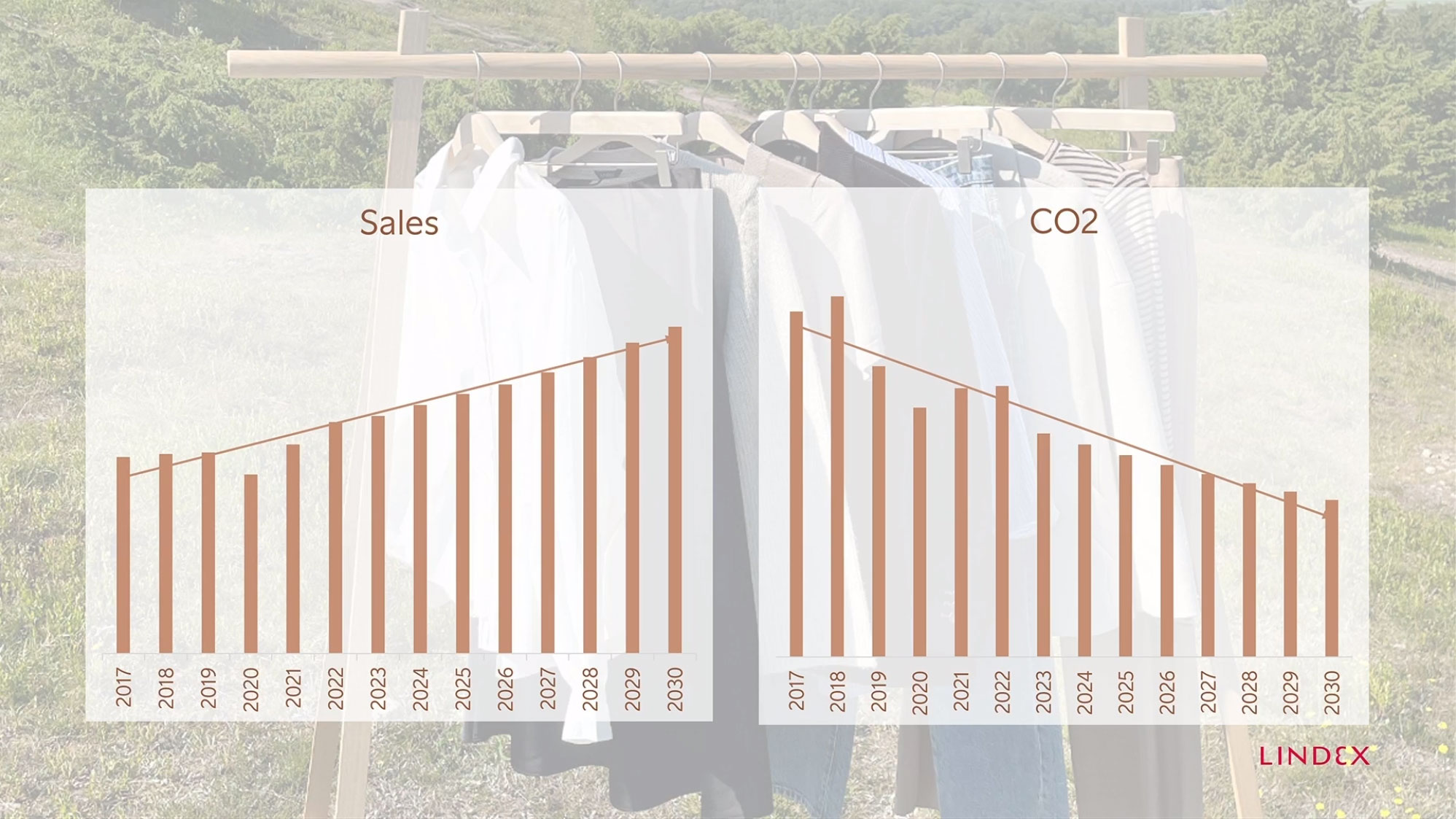
Now Lindex has switched to a base year of 2022 where the goal is to reduce the climate footprint by 42% by 2030. They need to work on all different parts, but see that they can make the biggest difference on the material choices and the production side.
Sweden needs a green narrative
The author and former state secretary Per Schlingmann talked about Sweden needing a green narrative. How we make our decisions and what will happen. The story should show both a direction and an image of the goal. What is unique about Sweden?
- The beginning of the story – We are faced with a choice. We can choose development and innovation and rely on the goodwill of consumers. Sweden has a great ability to adapt.
- The core of the story – We have to change everything to fossil-free. He believes that it is also time to add trade and consumption because there is enormous power here. Trade has the power to influence the development towards a circular society. They can also make demands on suppliers, transport and influence consumer behaviour. Here, Sweden can be a leading country – The commerce country Sweden.
- Credibility of the story – It’s all about what we do that creates credibility. Here we can highlight good examples such as Södra OnceMore, Sellpy and Arkivet.
The commerce is early in the meeting with the people and are close to the consumers. He believes that trade is ready to take on the responsibility of being part of a story about where we are going and thinks that commerce should take more space and take on the leader's jersey. Sweden has progressive consumers who are early adopters who quickly pick up on new trends.
We must be optimistic to succeed. Per raises the computer game developer Jane McGonigal who believes that we should play more computer games. Even in a leadership context. When you sit and play, you don't think you will lose, you are always close to a win. Active and on.
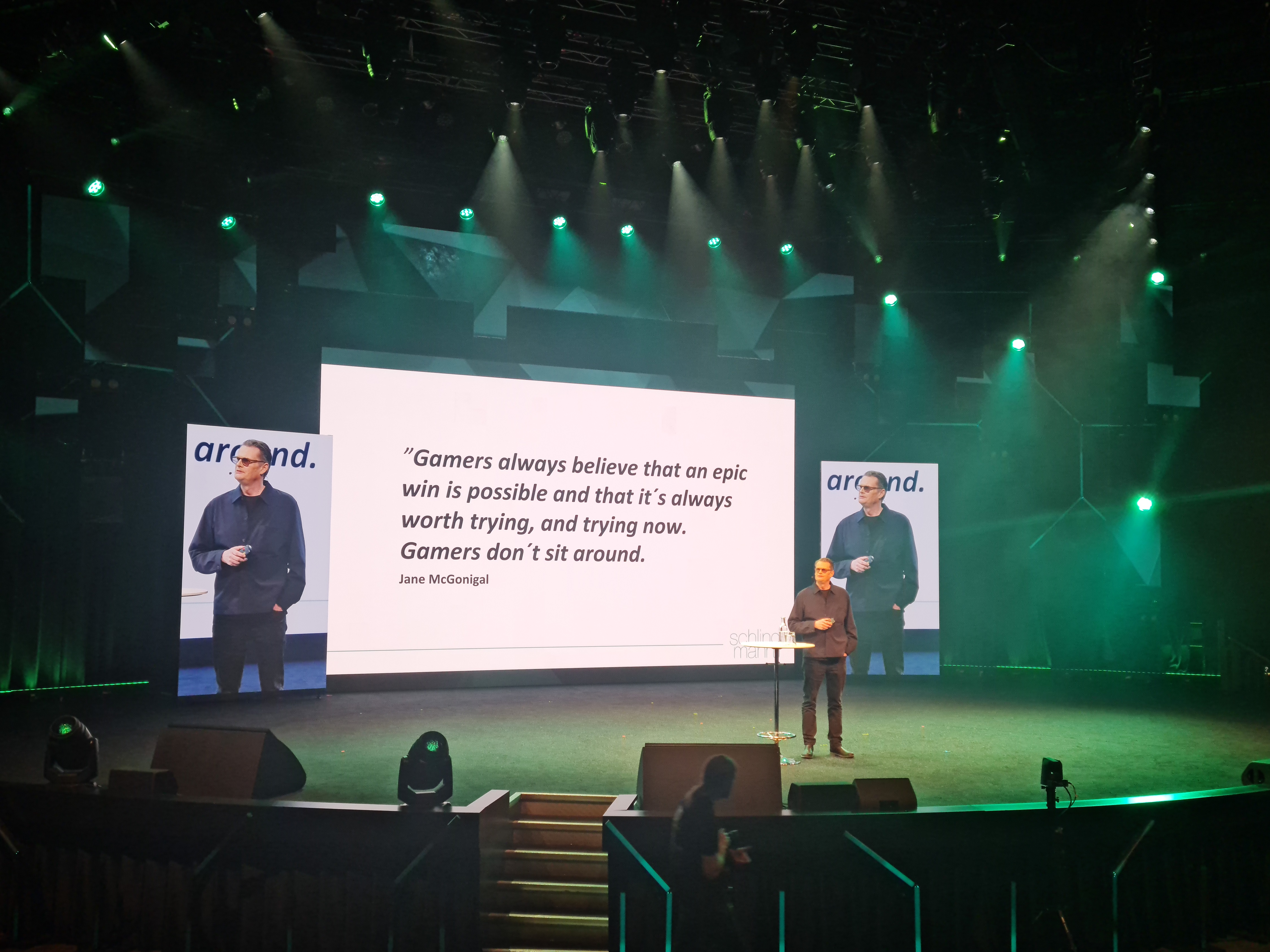
The journey towards an AI-driven organization
Klarna had an appreciated session on how they work with AI and the journey towards an AI-driven organization led by AI manager Martin Elwin. Today, 75% of all their employees use AI tools, but they aim for 100%. Although he highlights the advantages of AI that you can work faster, better and simplify, it is also important to bear in mind that you should be aware of shortcomings and misunderstandings that may arise.
The different departments benefit from AI in different ways:
- The finance department improves reporting.
- The developers write code with AI support.
- Customer service automates process and documentation.
- The marketing department gets help with copywriting and text.
- Analysts use AI to find the right data faster.
- All employees can find information with semantic search.
It has become a rapidly growing initiative that is appreciated internally, the employees feel that it is easier to find the right information. They think you can think of it as a digital colleague.
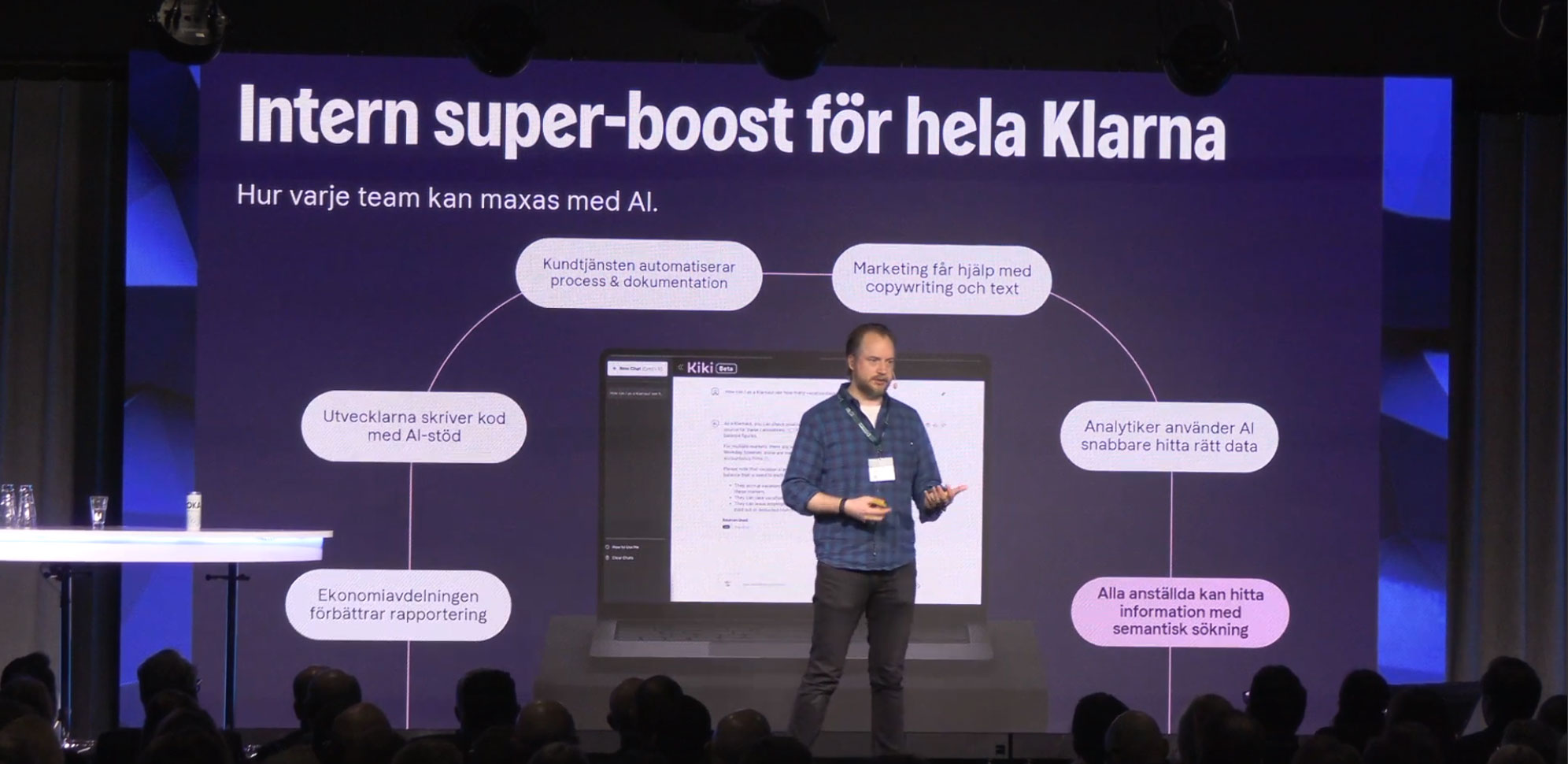
Klarna's AI Assistant answers questions and has helped reduce waiting times. Now 2/3 of all customer service cases are handled with the assistant. From having a time to solve a case of around 11 minutes, it has now gone down to less than 2 minutes. They expect the AI assistant to positively affect the result by 400 million.
Axel Johnson – always long-term, always impatient
An inspiring session that many talked about afterwards was Axel Johnson's CEO Thomas Ekman. He believed that turbulence is the normal state of man, calm is the abnormal.
In 2015, a renewal goal was formulated for the group – 10/50, which means that in 10 years, 50% of what they do then should not be things they do today. In the ninth year, they are now at 46%. The turnover has doubled in the same time, the e-commerce share has gone from approx. 9 to approx. 30%. It has created a drive and curiosity in the company – they didn't know in 2015 what the goal looked like or how they were going to get there, it was off the map, but they have worked for it. Now another 50 step has been added, 10/50/50, where the climate footprint should also be reduced by 50% in 10 years.
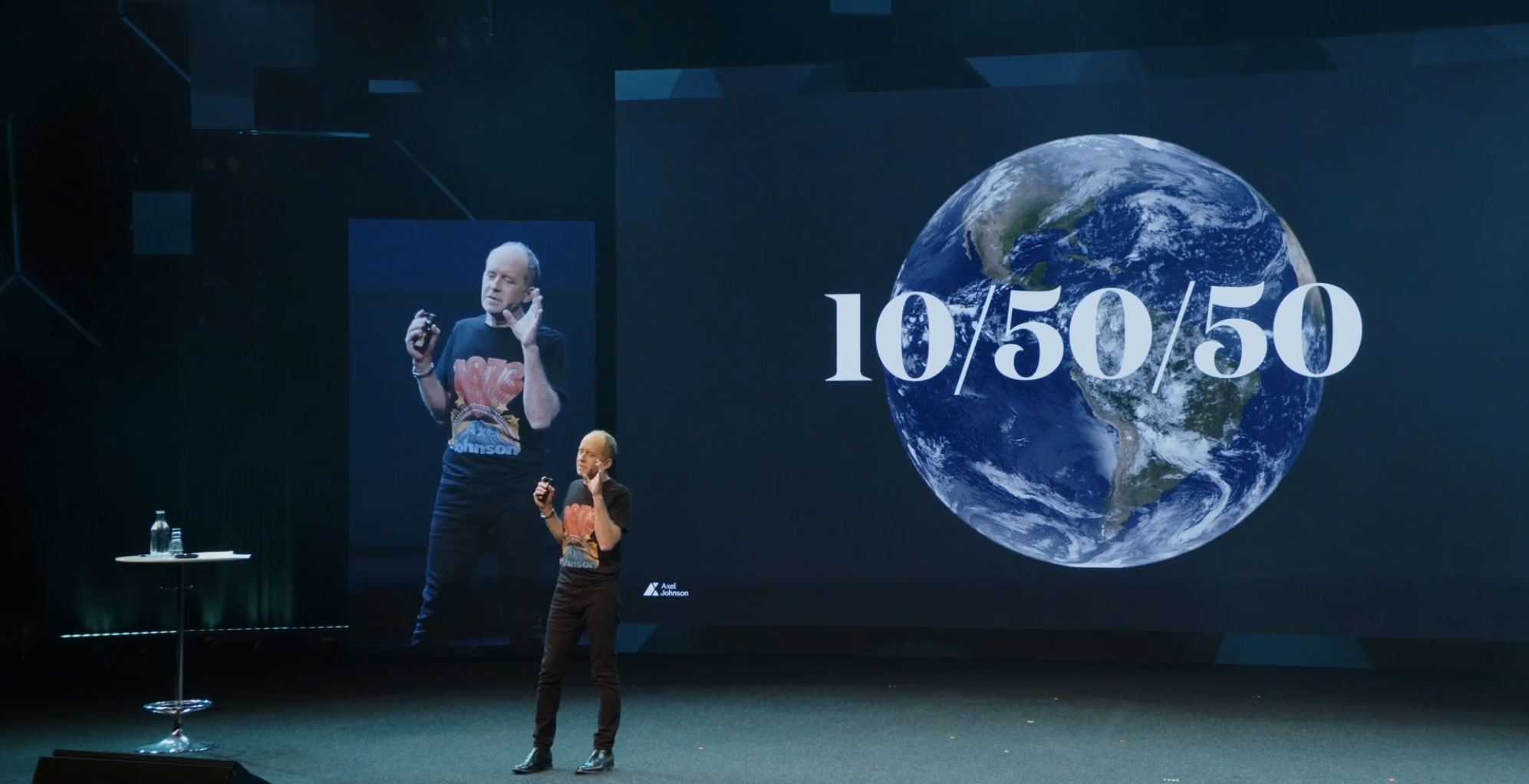
Axel Johnson calls themselves commercial philanthropists – a care for people, but with a commercial thought. Businesses are the absolute strongest force to influence society in a positive direction. It is a fantastic tool for creating forward movement and renewal.
Self scan with Swish
In the Swish booth, we had the opportunity to try Self scan with Swish before it was launched later in March. Very smooth, the scanner picked up wrinkled barcodes that can otherwise be a problem with self-scanners and it was a good shopping experience without using extra apps. In connected stores, you can now easily scan and pay directly in the Swish app, and more will be added continuously.
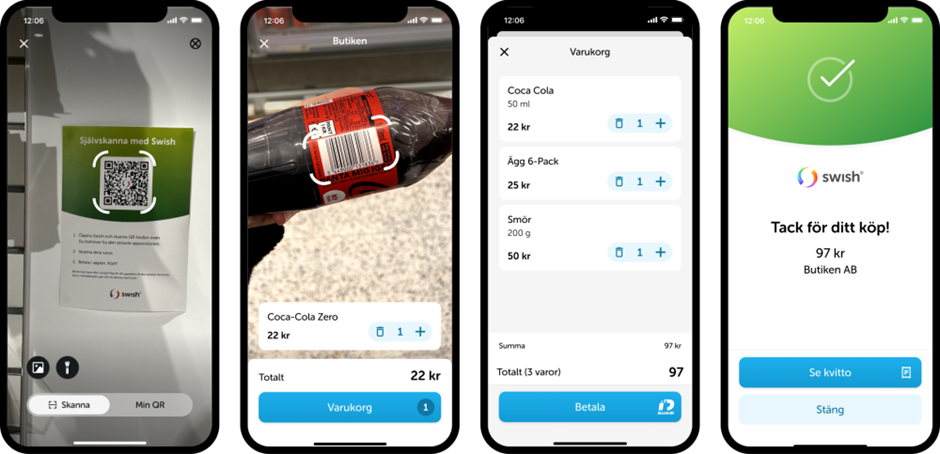
Very pleased with these days at D-Congress, we are already looking forward to 2025 when the fair starts on March 5-6.
